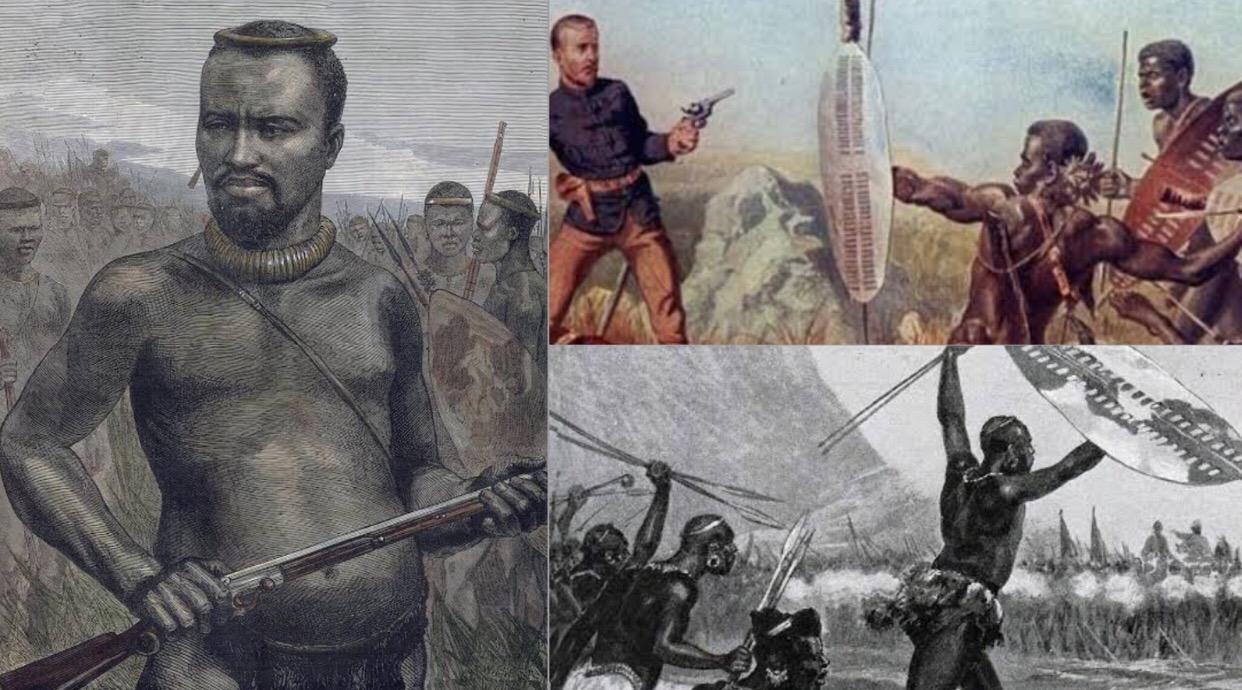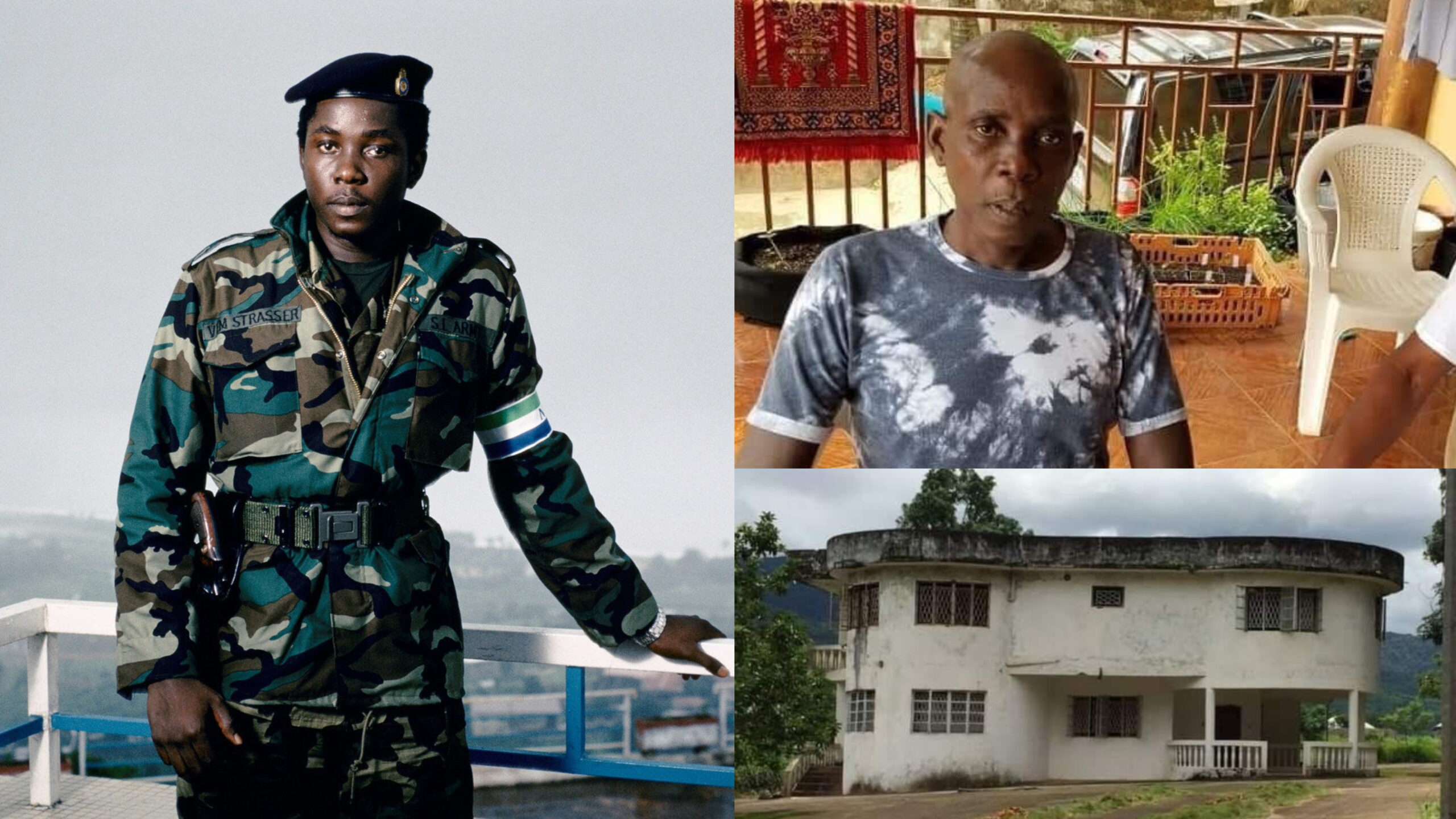KaMpande was a commander of Zulu during the Anglo-Zulu War. He is most notable at the Battle of Rorke’s Drift for having commanded the Zulus. Dabulamanzi was a half-brother of Zulu king Cetshwayo kaMpande.
Following the Zulus defeat, and Cetshwayo’s arrest, Dabulamanzi was calling for his brother’s return to power. As Cetshwayo was returned in 1883 Dabulamanzi fought on his side to hold the Zulu empire unified.
His father Mpande, was the former Zulu King who was a half-nephew of the legendary and famous Shaka. His mother was Sanguza, one of the three wives of Mpande.
Participation in the Anglo-Zulu War
With the beginning of the Anglo-Zulu War, Dabulamanzi again showed himself as a devoted ally of Kechvayo. He commanded the reserve forces of the Zulus in the battle of Izandlvan, but in this battle, he was not able to join the battle. The surviving British soldiers reached the nearby Fort Rorks-Drift, whose garrison immediately began to erect fortifications. Upon learning of this, Dabulamanzi decided, typical of his character, to force the river on its way to Rorks-Drift and attack it.
Later, he admitted that, at that moment he was led by a single desire: “to redeem the spears of his soldiers” in the blood of the British. In the battle of Rorks-Drift, the Zulus forces, despite more than tenfold superiority over the enemy, were defeated: the British post was relatively well fortified, and the soldiers who defended it, who had no opportunity to retreat, fought desperately and turned the Zulus into flight.
When it became known about the events of Rorks-Drift in the ranks of the Zulus, the Zulu warriors, led by Dabulamanzi, who had fled from the battlefield, were mocked by their compatriots: Brother Kechvayo received royal disapproval and returned to his kraal . However, his participation in the war did not end there. He organized a blockade of the British in Fort Eshov, and in the battle of Gingindlovu commanded the right “horn” of the Zulu army.
Recent years
After the defeat in the Anglo-Zulu war and the division of the Zulu country into 13 “independent” chiefdities, the Umbi Dabulamanzi found herself in the territory that was under the control of the English merchant and former adviser Kechvayo John Dunn. As a result of the defeat and division of the country, the Zulus were in a state of anarchy, they were torn apart by civil strife.
Dunn, abusing the received power, overlaid the heads of the krayals subject to him with a tax on one head of cattle and made him sell cattle at reduced prices. Many Zulus long feared attacks by the British and hid in caves and other secluded places. To top it off in 1880 – 1881, the Zulus were struck by a terrible famine. In numerous clashes of opponents and supporters of Kechvayo, thousands of people were killed.
Under these conditions, the leaders of the uzutu (under this name were known supporters of Kechvayo) began to appeal to the British authorities with the request to return to the country of Kechvayo , so that he would restore the broken order. Dabulamanzi was one of the active participants in the campaign for the return of Kechwayo to Zululand.
With the support of the Anglican Bishop J. Colenso, the Zulus were able to achieve the return of Quechwayo in 1883. Dabulamanzi again took the lead of the uzutu units, but after two defeats against Zibeb – the main opponent of Kechvayo in the struggle for power – he fled with Kechvayo to the colony. After Kechvayo’s death on February 8, 1884, Dabulamanzi spoke in favor of the transfer of power to the son of the deceased Inkosi, Dinuzulu. To achieve this goal, Dabulamanzi went on to organize the union of Dinuzulu with the Boers in 1884. However, the Boers in exchange for assistance demanded significant territorial concessions from the Zulus, which aroused Dabulamanzi’s outrage and led him into conflict with his former allies.
On September 22, 1886, he was arrested by two Boers, van der Berg and Joubert. Dabulamanzi attempted to escape to the territory of a British reservation, but was injured during the ensuing firefight and died the next day. Dabulamanzi was buried not far from Fort Newdigate
 The African History Truly African
The African History Truly African

